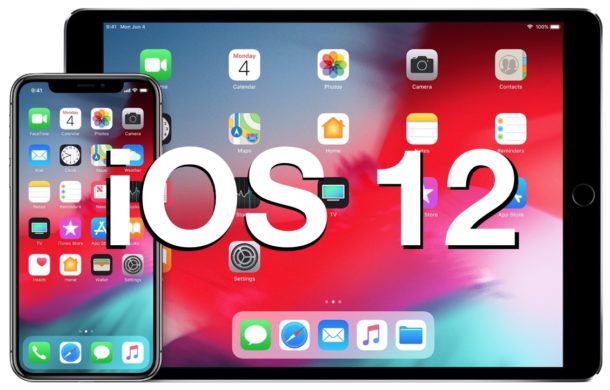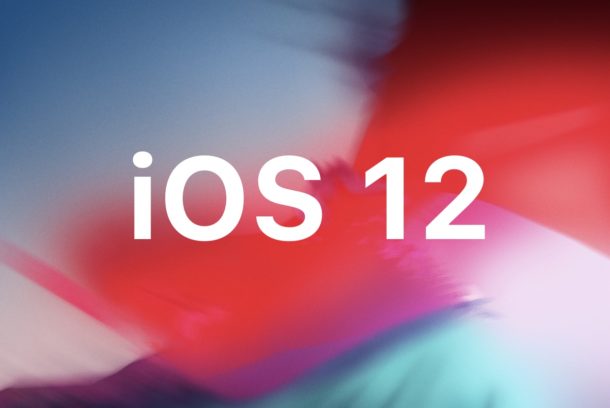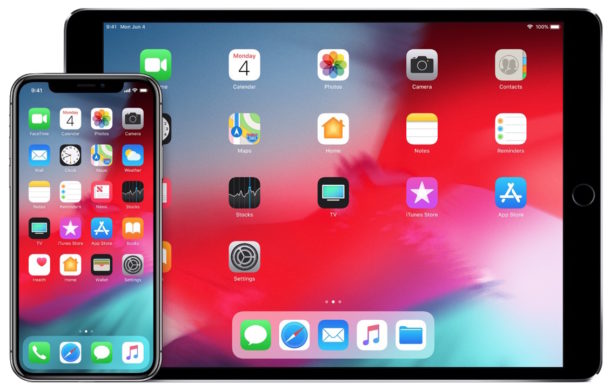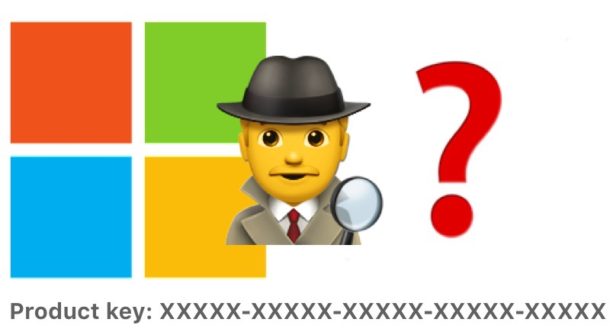Download iOS 12 Update Now [IPSW Links]

Apple has released iOS 12 for compatible iPhone, iPad, and iPod touch devices. Basically any device capable of running iOS 11 can run iOS 12, and with the software update focusing on performance improvements Apple is recommending that all eligible users update to iOS 12.
iOS 12 features performance enhancements to app launching and camera opening, the ability to create personalized Memoji on some iOS devices, four new Animoji characters, new sticker capabilities in FaceTime and Messages, a helpful Screen Time feature that allows you to set limits to application usage and monitor device usage, a new Shortcuts app that sort of functions like macros to perform semi-automated tasks in iOS, new Notifications management options, and many other small changes and subtle improvements to the iPhone and iPad operating system. Later, iOS 12 will support group FaceTime with up to 32 participants.
It’s a good idea to run through steps to prepare for the iOS 12 update if you have not done so already. Aside from performing some device housekeeping, the most important step by far is to backup your iPhone or iPad before installing the software update.
















